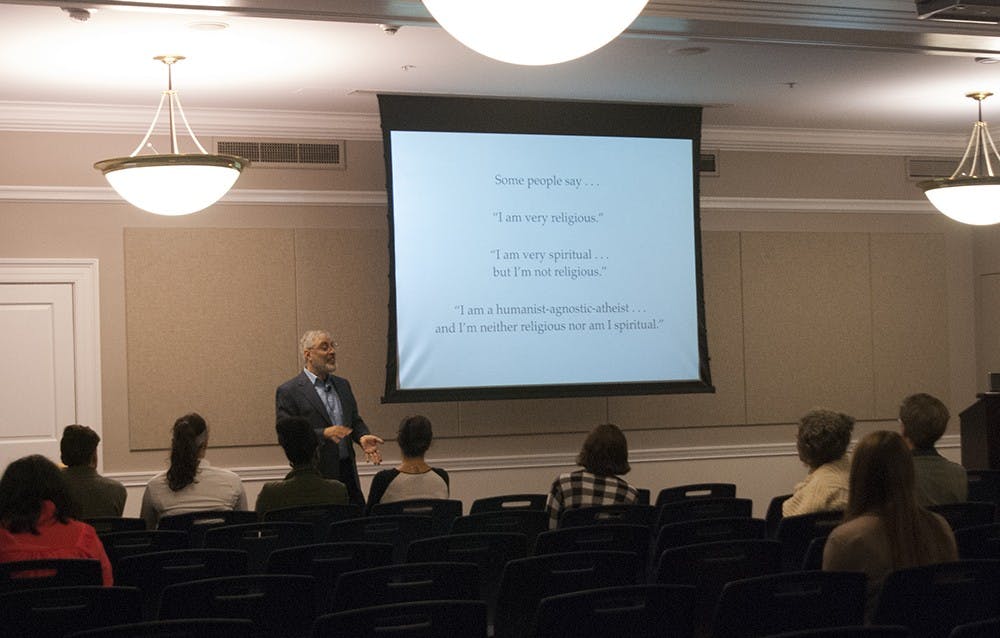Christopher Newport Religion Prof. Graham Schweig gave a lecture in Newcomb Friday titled “Spiritual but Not Religious.” Schweig, who earned a doctorate degree in comparative religion from Harvard, is an author, scholar and yogi. His books, including his translation of the “Bhagavad Gita,” are widely acclaimed.
His talk focused on the distinction people make between spiritualism and religiosity. Religion, derived from the Latin “religare,” meaning to connect, is something understood by all. But he said spirituality tends to be “understood by what it is not” — hence, “spiritual but not religious.”
Schweig highlighted the nature of religion and spirituality as an art, rather than science.
“What one loves is not debatable,” Schweig said. “What one holds as truth is not arguable; how one acts out of faith is non-negotiable.”
He likened religion to art in a picture in a frame or silence surrounding music, saying religion helps people put their world in context.
He went on to briefly narrate the tale of “Six Blind Men and the Elephant,” where each man thought the elephant was something different depending on the part of it they touched. They were all correct in their own ways.
Schweig said different religions do the same thing — thinking their religion is the whole, rather than a part of a whole.
“God is too big to fit into one religion,” he said.
Schweig also spoke about the differences in religious beliefs between the global west and global east.
“In the West, there is God, and in the East, transience,” he said. “The West prays, the East meditates. The West believes in Heaven and Hell, the East believes in transmigration. The West honors saints, the East honors sages. The West fears nature’s fury, the East considers nature sacred.”
Between these two lands, he said, lies the subcontinent of India, an amalgamation of both value systems. Schweig said with time, religion has seen “the East coming West more and more.”
Schweig also emphasized the importance of yoga in uniting spirituality and religion.
Schweig also discussed what he claims is a general tendency to shun religion. He questioned why the University refers to the study of religion as “Religious Studies, while history is not called ‘Historical Studies’ or biology ‘Biological Studies.’”
Schweig told the audience religion should be used for the exploration of spirituality, for peace of mind and for positivity.





